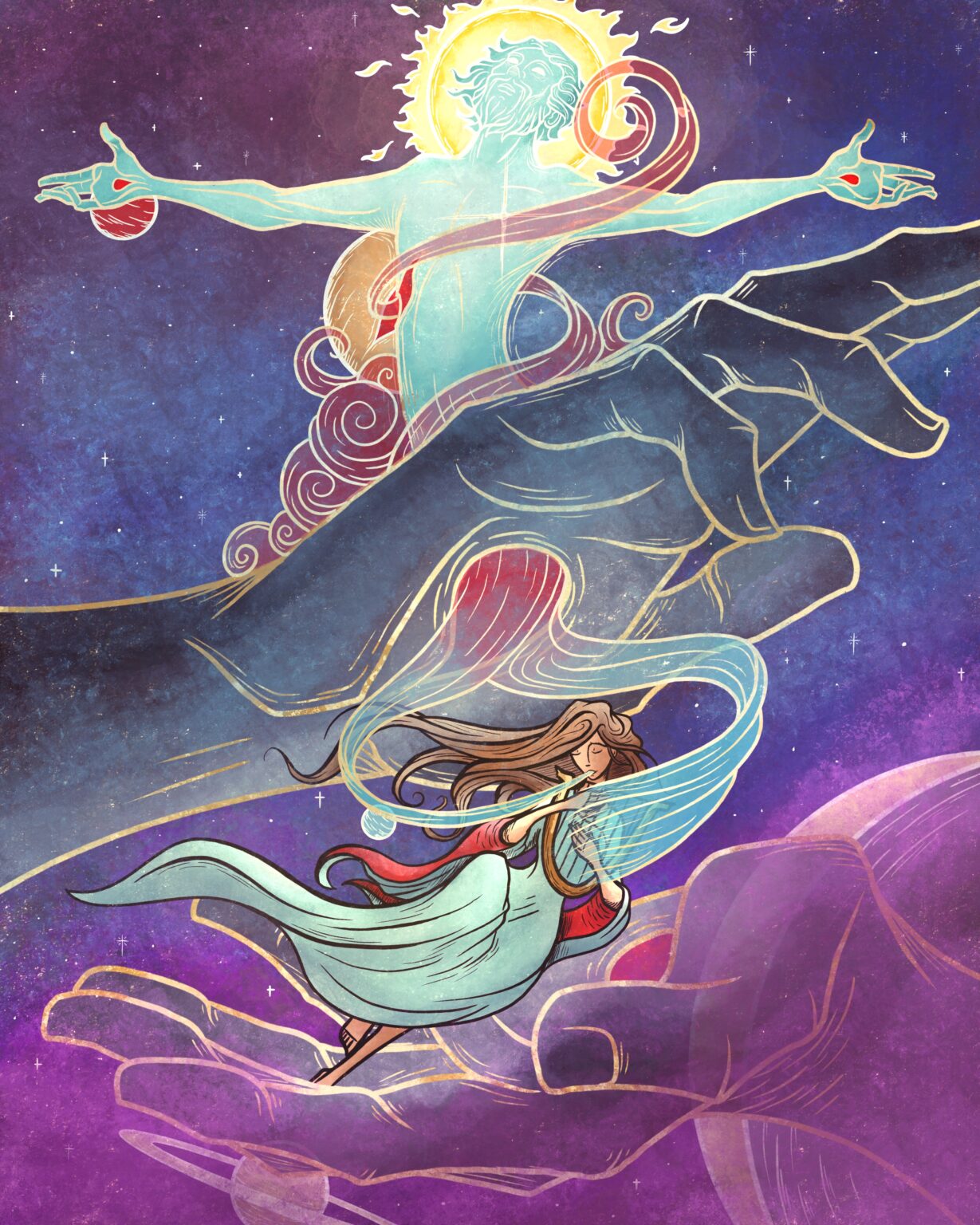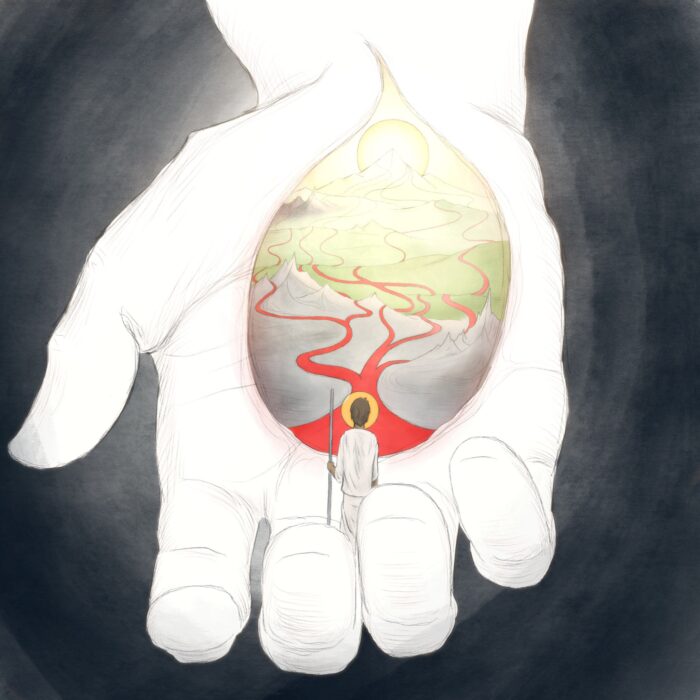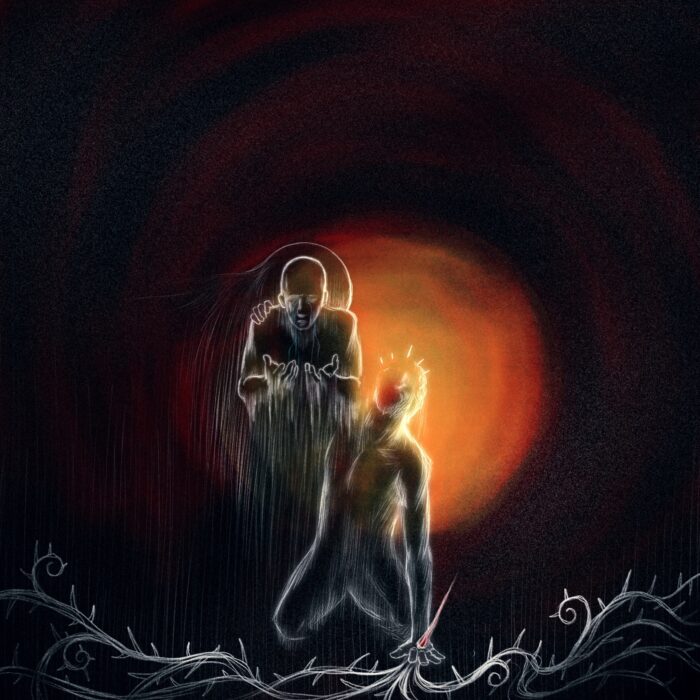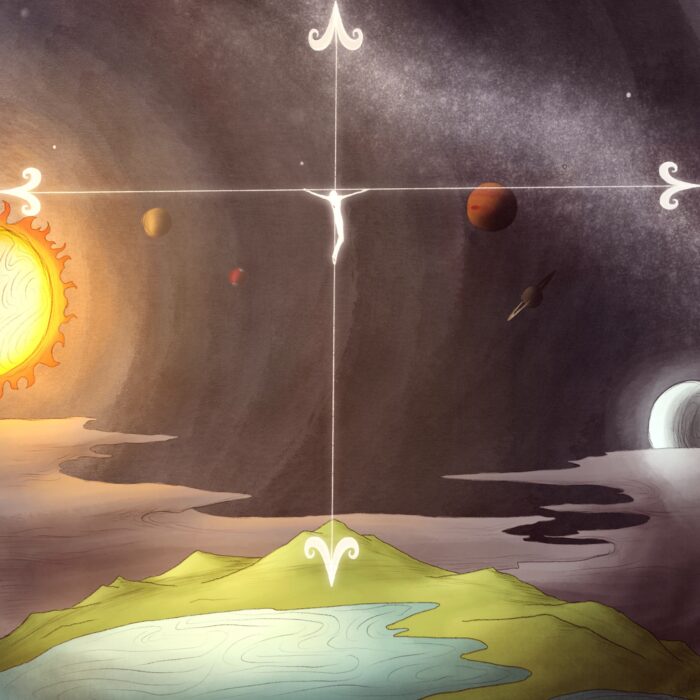Psalm 19:14, ‘Let the words of my mouth and the meditations of my heart be acceptable in your sight, O YHWH, my Rock and my Redeemer.’
Verse 14 really functions as a final seal upon all of Psalm 19, so when one of my Patreon supporters asked me to visually exegete this text, I had to consider the entire poem afresh. Psalm 19 can be broken into two major sections: The first (v.1-6) rejoicing in the created world as cosmological herald of God’s glory, the second (v.7-11) rejoicing in the Law of YHWH.
Ultimately, these two rejoicings are indivisible, since the God whose word creates and sustains the heavens is the God who speaks in written Scripture, and the beauty declared by the cosmos is the beauty articulated in the Law, Prophets, and Writings.
Lastly, David prays that he would be conformed to the ways of the Lord as revealed in the world and the word, and finally ‘seals’ the whole with a request that the foregoing 13 verses might be received as an acceptable sacrifice of praise to God (the language of v.14 echoes that of the OT sacrificial system).
I’ve attempted to translate David’s final request—and the entirety of this poem—into today’s visual exegesis:
The heavens declare the glory of God, and the glory of God is the crucified and risen Jesus Christ (2 Cor.4:4,6; Heb.1:3). Therefore I’ve featured Christ—synchronously crucified and raised—prominently in the image. More than this, the heavenly heralds of the seven classical planets find their place in symbolic orientation to himself (v.1-6).
The Law, too, declares the glory of Christ, in whom it is fulfilled, such that this same depiction of Jesus gathers up the Psalmist’s meditation on the Law in v.7-11.
Finally, the Psalmist (here pictured as a woman since the patron who requested this is a woman, and because she in this way depicts the entire Church) sings in the refuge (my Rock) and under the covering (my Redeemer) of YHWH’s sovereign, love-pierced hands, her words and meditations made acceptable as they pass through the interceding wounds of her Lord and so are united to—and made an expression of—that offering which along is acceptable before the Father: the anastasiform Jesus Christ.




